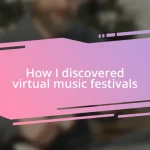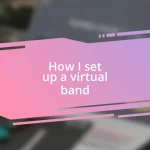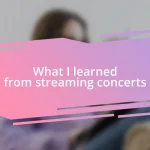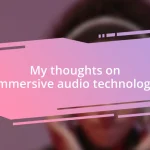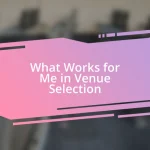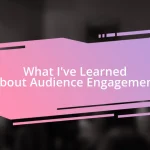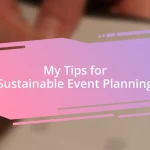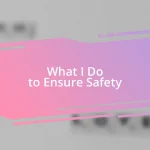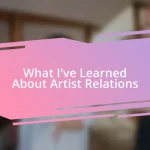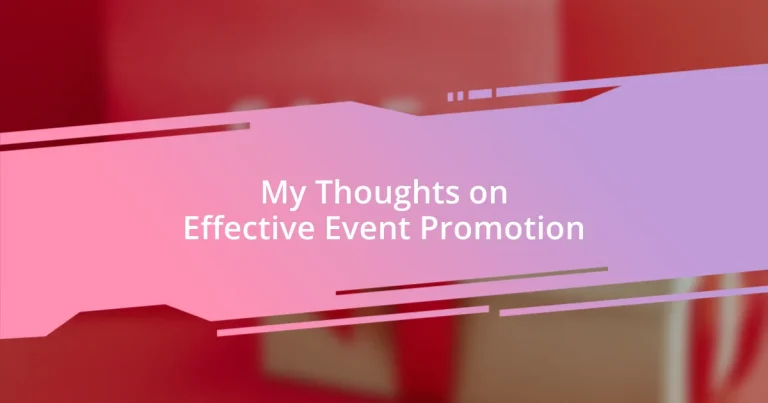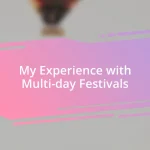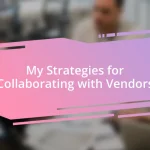Key takeaways:
- Understanding your target audience is essential; it allows for tailored messaging, increased engagement, and improved ROI.
- Utilizing a mix of promotion channels, such as social media, email marketing, and local partnerships, enhances event visibility and attendee comfort.
- Measuring success through key metrics like ticket sales and engagement helps refine future promotional strategies and enhance attendee experience.
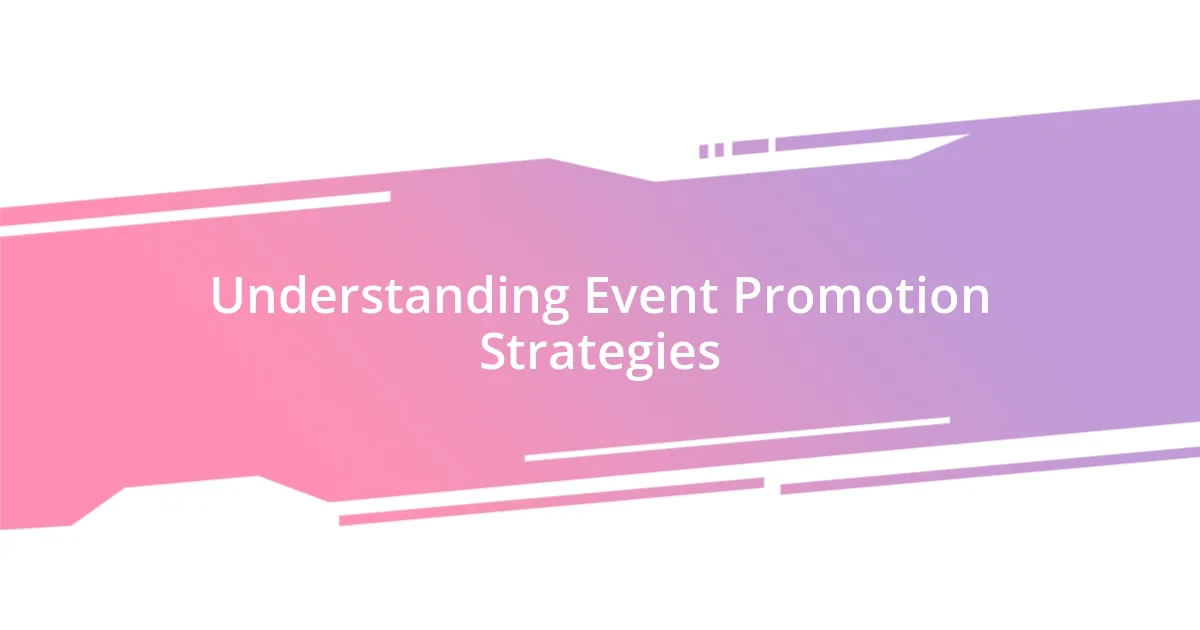
Understanding Event Promotion Strategies
When I think about effective event promotion strategies, I remember the excitement leading up to one of my first big events. I learned that knowing your audience is crucial; tailoring your marketing to their preferences can significantly influence attendance. Have you noticed how some campaigns resonate with you while others fall flat? That connection often starts with understanding who you’re trying to reach.
Utilizing multiple channels is another vital strategy. I once relied solely on social media, only to realize that email marketing had a much deeper reach among my contacts. Have you considered combining platforms like social media, emails, and local partnerships? Each channel can reinforce the others, creating a buzz that’s hard to ignore.
Additionally, storytelling is a powerful tool in event promotion. I vividly remember crafting a narrative around an event that highlighted personal experiences and community impact. Didn’t that resonate with you? Sharing stories can transform a simple promotion into something that feels meaningful and inviting, drawing in attendees who are eager to be part of that story.
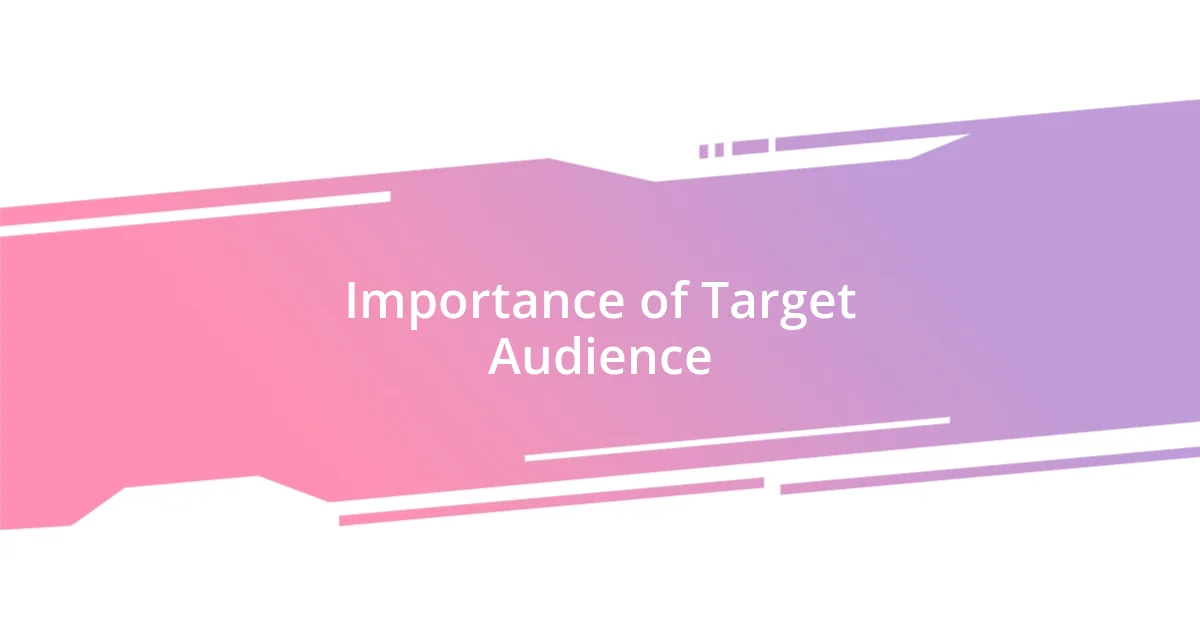
Importance of Target Audience
Understanding your target audience is like having a roadmap for your event promotion journey. I recall an event where I focused on promoting to a younger demographic but forgot to consider their preferences for platforms. While I was active on Instagram, I neglected Facebook, which many of them still use. This oversight was a lesson in ensuring that I align not just my message, but also the channels of communication with the audience I truly want to engage.
When you identify your target audience, you can create content that resonates deeply. Here are some key reasons this is important:
-
Tailored Messaging: Knowing what your audience values allows you to craft messages that speak directly to their interests and motivations.
-
Increased Engagement: Engaging with your audience in the places they frequent boosts not only attendance but also the overall excitement surrounding the event.
-
Improved ROI: By directing your promotional efforts towards a specific group, you are likely to see higher returns on your investment through increased ticket sales and sponsorship interest.
-
Building Community: When your audience feels understood, they’re more likely to share the event with their networks, amplifying your reach organically.
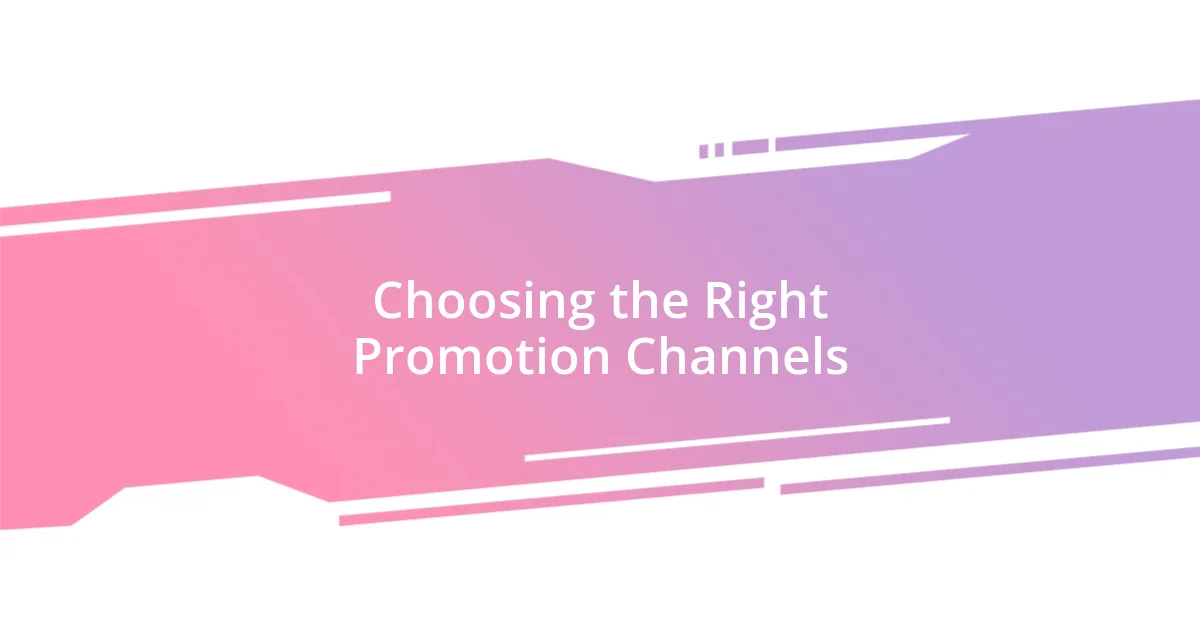
Choosing the Right Promotion Channels
Choosing the right promotion channels can make or break your event. I remember when I organized a charity fundraiser. I tried to promote it through a local newspaper, thinking it was a cost-effective way to reach a wide audience. However, I neglected to leverage online channels. The paper had limited reach, and the event ended up underwhelming. The lesson? Always research which platforms your audience engages with the most.
As I explored different channels, I discovered that using a mix of social media and local event listings created a dynamic synergy. For instance, sharing event updates on Instagram while also listing it on community boards brought in a diverse crowd. I noticed that people who saw the event on multiple platforms felt a sense of familiarity, increasing their likelihood of attending. It’s fascinating how that dual exposure can make potential attendees more comfortable and excited about participating.
Finally, measurement should guide your selection. I once tracked engagement on various platforms for an annual festival. While Facebook ads garnered clicks, it was the targeted email marketing that actually drove ticket sales. I learned firsthand that not all channels yield the same results. Understanding performance by channel is vital, as it lets you refine your strategy for future events.
| Channel | Strengths |
|---|---|
| Social Media | Wide reach, visual engagement, real-time interaction |
| Email Marketing | Direct communication, high conversion rates, personalized content |
| Local Partnerships | Community trust, localized outreach, access to new audiences |
| Event Listings | Targeted exposure, audience-specific, helps with awareness |
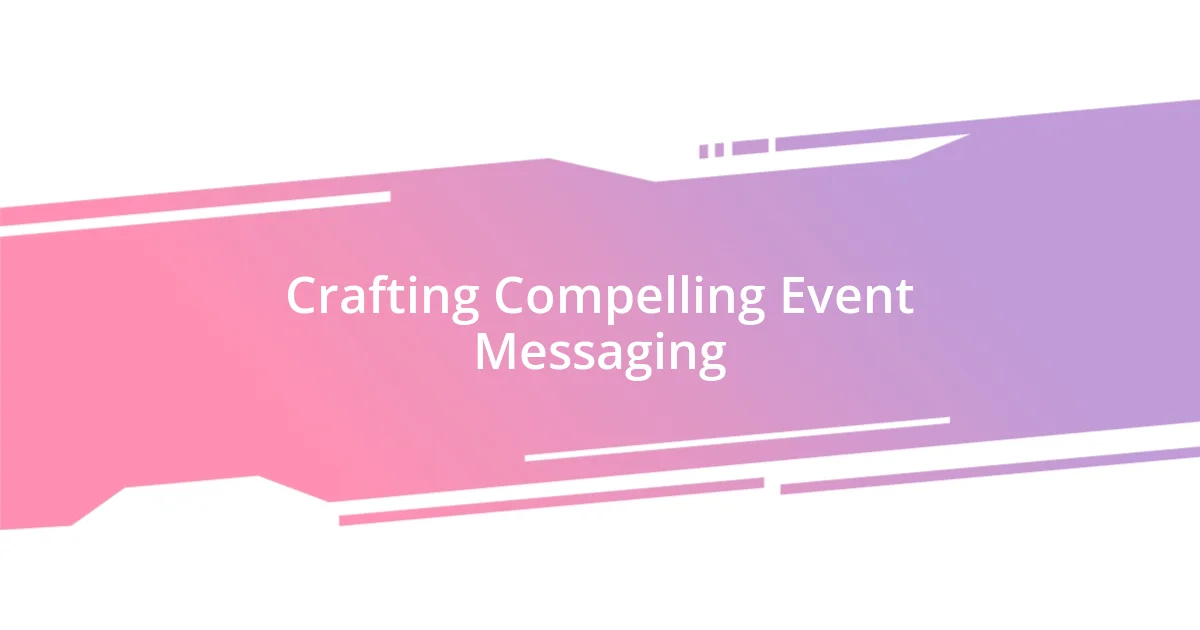
Crafting Compelling Event Messaging
Crafting compelling messaging is essential for driving interest in your event. I remember a time when I was juggling multiple marketing strategies for a networking event. I decided to share a personal story of my own first networking experience—the nerves, the excitement, and ultimately, the connections I made. Surprisingly, this heartfelt approach resonated with my audience, sparking conversations and encouraging them to share their own experiences. Isn’t it interesting how a simple narrative can create a bridge between your event and potential attendees?
Moreover, clarity is crucial. When I planned an art exhibition, I faced the challenge of conveying the unique theme. Instead of just labeling it as “modern art,” I framed it as an exploration of “self-identity through paint.” This not only captured attention but ignited curiosity about the artists’ intentions. Think about your own messaging—are you being specific enough to spark intrigue, or are you allowing your audience’s interest to wane?
Lastly, don’t shy away from infusing your messaging with excitement! I once attended an event where the promotional material was all statistics and information. While informative, it lacked energy and passion. I’ve learned that eliciting emotion—be it joy, curiosity, or even a sense of urgency—can turn a mundane message into a powerful call to action. Ask yourself, how do you want your audience to feel when they read your invitation?
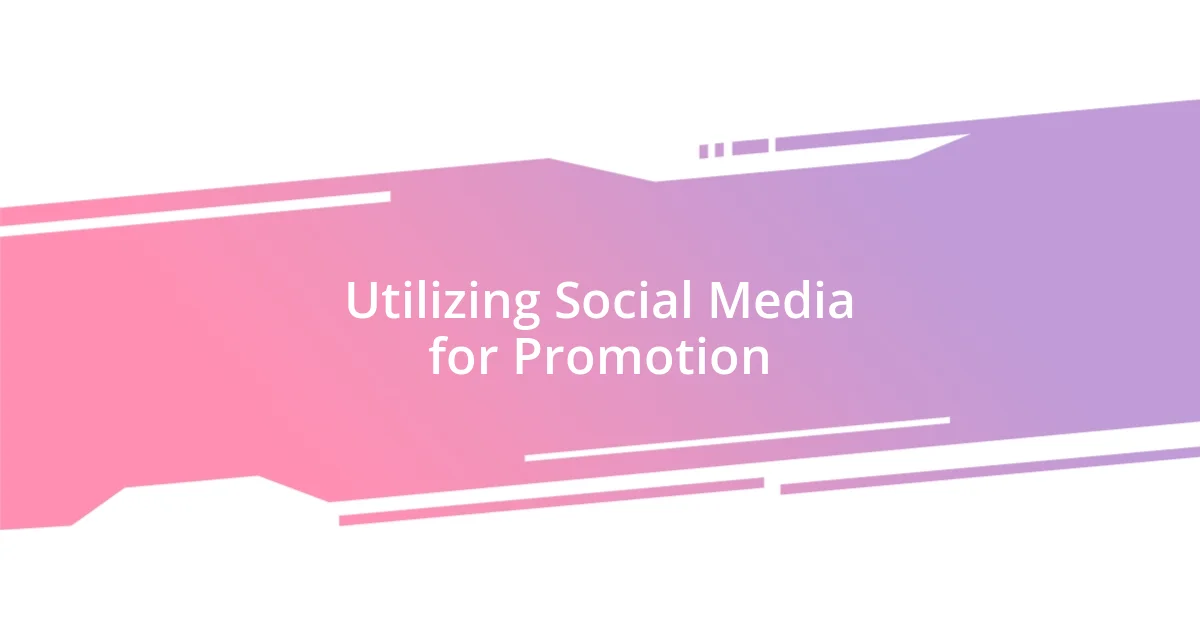
Utilizing Social Media for Promotion
Social media has become a game-changer for event promotion, in my experience. When I organized a music festival, I created an event hashtag that encouraged attendees to share their excitement on platforms like Twitter and Instagram. I remember feeling an electric buzz as I watched the posts roll in, amplifying our reach and building community long before the festival gates opened. Isn’t it amazing how a simple hashtag can turn into a rallying cry for your event?
One strategy that I found particularly effective was utilizing Instagram Stories to provide sneak peeks into the event preparations. I would share behind-the-scenes moments—from setting up the stage to chatting with artists. This real-time content not only created anticipation but made followers feel like they were part of something special. It’s like inviting people into your world and making them invested in your journey. Have you thought about the potential of bringing your audience along with you?
Engaging directly with followers through polls and Q&A sessions added another layer of connection. During one event, I ran a poll asking what food trucks attendees would like to see. The responses not only guided my decisions but encouraged those who participated to attend, knowing their voices mattered. This kind of interaction fosters community and investment. How do you think your audience would respond if you asked for their input? You might be surprised at how much they want to contribute!
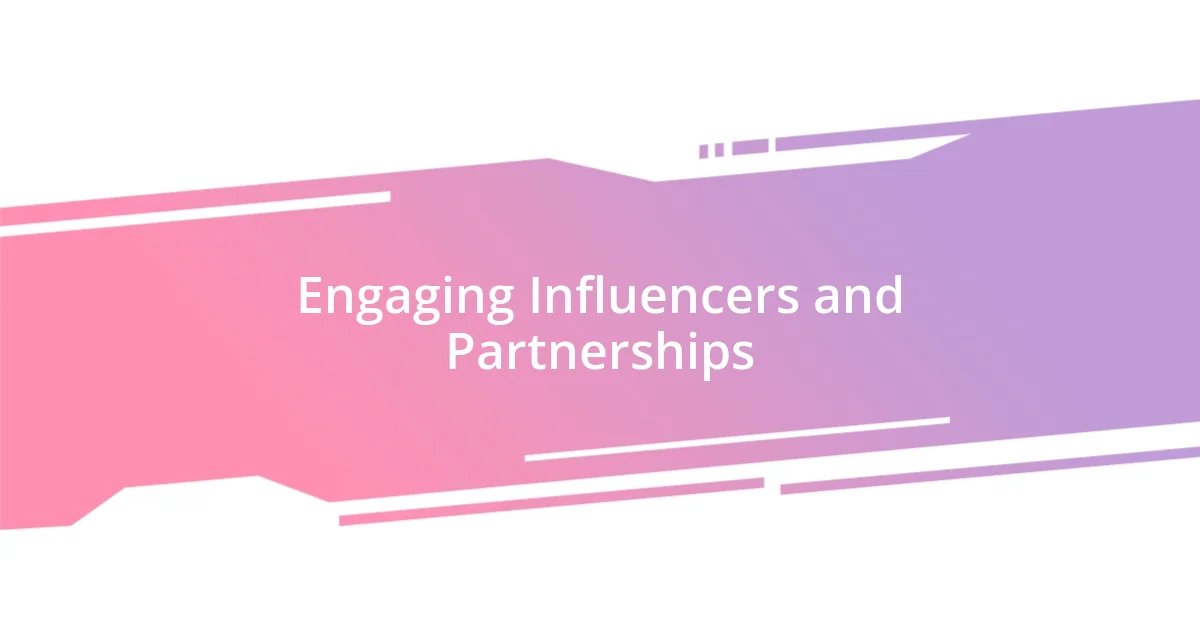
Engaging Influencers and Partnerships
Working with influencers has been a game changer for me in promoting events. I remember partnering with a well-known local chef for a food festival. Not only did she share our event on her platforms, but her genuine excitement drew in her followers, many of whom attended solely because they trusted her recommendation. It’s fascinating how the right influencer can legitimize your event in the eyes of potential attendees—have you ever considered who your audience listens to when making decisions?
In my experience, building partnerships is about creating win-win situations. I once collaborated with a local art gallery to co-host an event, which allowed us to pool our resources and audiences. This synergy not only enhanced the event’s offerings but also attracted a diverse crowd that wouldn’t have come otherwise. Have you thought about how collaborations could amplify your reach? It’s all about leveraging each other’s strengths to craft something greater.
I’ve also learned that engaging influencers goes beyond mere promotions. When I ran an open mic night, I invited several local poets to participate not just as performers but as co-promoters. Their authentic investment in the event created a ripple effect, as they mobilized their own networks to support what we were doing. It makes me wonder—how can you tap into the genuine excitement of those who are already passionate about your theme?
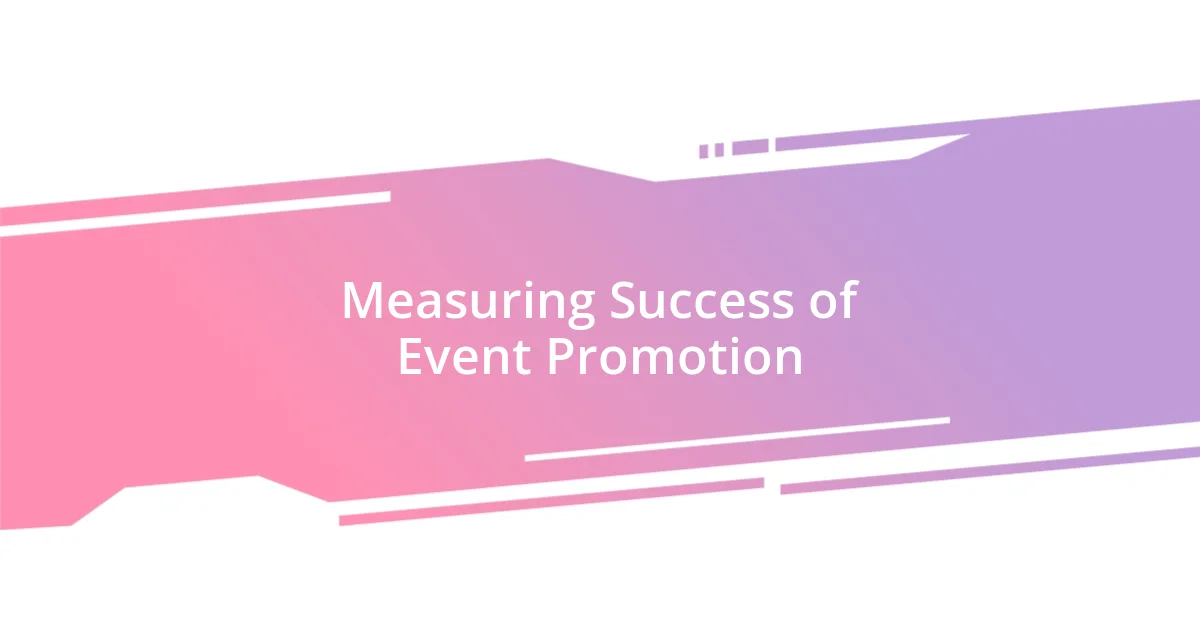
Measuring Success of Event Promotion
Measuring the success of event promotion can feel overwhelming, but I’ve found that focusing on key metrics makes it more manageable. For instance, I’ve often analyzed ticket sales leading up to an event, comparing them to previous ones to gauge effectiveness. Seeing a significant uptick gave me an exhilarating sense of affirmation that our marketing efforts were hitting the mark. How do you determine if your promotional strategies are making an impact?
Another vital aspect is engagement metrics on social media. I recall a specific event where we monitored likes, shares, and comments leading up to the day. The excitement was palpable as we saw engagement skyrocket. It not only boosted our visibility but created a sense of community among attendees. Which metrics do you keep an eye on to ensure you’re connecting with your audience?
Post-event surveys have also been invaluable for gauging success. After one particularly successful festival, I distributed a short survey to attendees, capturing their thoughts on everything from programming to overall satisfaction. The feedback not only provided valuable insights for future events but also made attendees feel involved in shaping the experience. Have you ever tapped into your audience’s voice for feedback after an event? It’s a fantastic way to show you value their opinion and are committed to continuous improvement.
